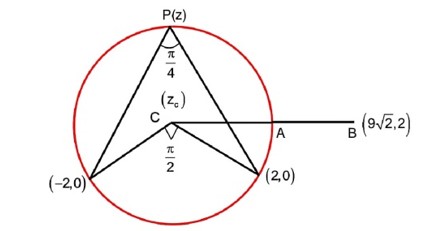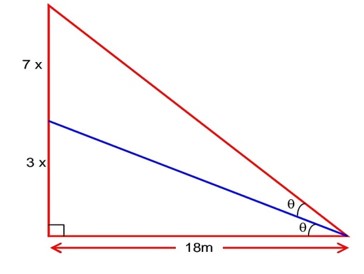Maths
Get insights from 6.5k questions on Maths, answered by students, alumni, and experts. You may also ask and answer any question you like about Maths
Follow Ask QuestionQuestions
Discussions
Active Users
Followers
New answer posted
3 months agoContributor-Level 9
Let zc be the centre of the circle

Radius of the circle =
Square off minimum distance AB =
New answer posted
3 months agoContributor-Level 9
Let P (1 + 2r, 2 + 3r, 1 + 6r) lies on the plane 2x – y + z = 6
Distance between P and Q is PQ =
New answer posted
3 months agoContributor-Level 9
VOWELS
vowels – 2, constants – 4
all the consonants never come together = 6! – 3! 4! =720 – 144 = 576
New answer posted
3 months agoContributor-Level 9
Since centres C1 (1, 1) and C2 (9, 1) lies opposite sides of the line3x + 4y = α
Also length of perpendicular from centre of the circle is greater than radius of the circle.
and
from (i), (ii) and (iii) we get [12, 21]
sum of all integers = 165
New answer posted
3 months agoContributor-Level 9
q = 18° Þ 2q + 3q = 90° Þ sin 3q = 1 – sin 2q Þ cos q Þ cosq (4 sin2 q + 2sinq - 1) = 0
? x2 – 2x – 4 = 0
Taking an Exam? Selecting a College?
Get authentic answers from experts, students and alumni that you won't find anywhere else
Sign Up on ShikshaOn Shiksha, get access to
- 65k Colleges
- 1.2k Exams
- 679k Reviews
- 1800k Answers


